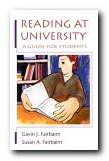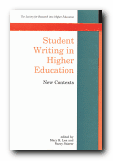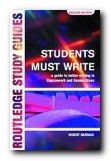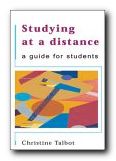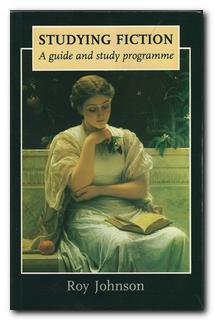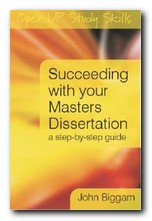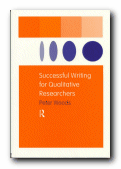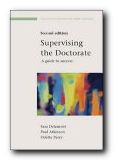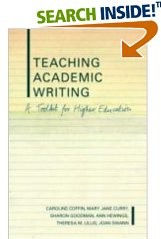postgraduate writing skills from start to finish
Many students reach postgraduate studies and have a difficult time producing their dissertations and theses – for two reasons. First, they’ve probably never written such a long piece of work before and second, because they’ve probably never seen one and therefore don’t know what it’s supposed to look like. Bill Allison and Phil Race start off this brief guide to postgraduate writing skills with the first issue which most students are likely to confront – how to choose a research topic.
 This needs to be done with some care, because you can be saddled with your choice for anything up to three years or more. It’s not unknown for some people to become bored by their own subject. Fortunately, the preliminary work of looking at the literature and searching the databases of research, is a lot easier these days since most of this information will be available on line.
This needs to be done with some care, because you can be saddled with your choice for anything up to three years or more. It’s not unknown for some people to become bored by their own subject. Fortunately, the preliminary work of looking at the literature and searching the databases of research, is a lot easier these days since most of this information will be available on line.
Next they explain what’s required in a research project – the ability to identify a problem, analyse it, read the literature, develop a research method, select the data, do the work, draw conclusions, and write up the results following the academic conventions of your subject.
The rest of the book is devoted largely to producing the written product which will be the material outcome of the research. This involves understanding the structure of dissertations and theses – knowing the correct order of their parts. This covers items which students often find difficult, such as how to reduce a thesis which might be anything up to 80-100,000 words long into a succinct 400 word abstract.
The other things which may people find difficult are quotations, referencing systems, and bibliographies. These are all worth understanding as soon as possible, because research which is perfectly successful can easily be referred back for ‘further revisions’ if the referencing is irregular or the bibliography doesn’t follow the specified standard.
Next they cover the process of doing the research itself – the actual work of the project and how to keep track of what you are doing. They stress the importance of writing up your work, organising your files, keeping records, and backing up what you produce – which should be easy now that the price of disk space and storage has fallen.
The last part of the book deals with the really small details of the physical object you will create – the page layout and margins, abbreviations, tables, the size of fonts, line spacing, and everything down to the way the finished pages will be bound.
So that covers just about everything. It’s up to you now to do the necessary work – and then you can collect your degree.
© Roy Johnson 2004
Brian Allison and Phil Race, The Student’s Guide to Preparing Dissertations and Theses, London: Routledge, 2nd edn, 2004, pp.100, ISBN: 0415334861
More on study skills
More on writing skills
More on online learning
